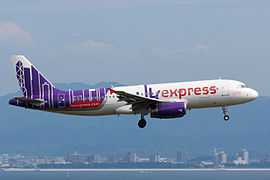HK Express: The Hong Kong most Popular Flight | Strategic Growth in Asian Market
HK Express, officially known as Hong Kong Express Airways Limited, is a low-cost airline based in Hong Kong. Since its transition to a low-cost carrier in 2013, HK Express has carved out a niche in the Asian aviation market, offering budget-friendly travel options across the region. This article delves into the history, operations, and strategic initiatives of HK Express, providing a comprehensive overview of its role in the evolving airline industry.

History and Development
HK Express was founded in 2004, initially operating as a full-service airline under the ownership of the Hong Kong Airlines Group. The turning point for HK Express came in 2013 when it rebranded as a low-cost carrier (LCC). This strategic shift was in response to the growing demand for affordable air travel in Asia and the competitive pressure from other LCCs in the region.
Under the leadership of Andrew Cowen, the airline rapidly expanded its fleet and route network. By focusing exclusively on low-cost services, HK Express tapped into a new customer segment, distinguishing itself from its parent company, Hong Kong Airlines, which continued to operate as a full-service carrier.
Fleet and Destinations
As of the latest data, HK Express operates a fleet primarily composed of Airbus A320 family aircraft, known for their fuel efficiency and suitability for short to medium-haul flights. This choice of aircraft aligns with the airline's low-cost model, allowing it to maintain operational efficiency and cost-effectiveness.
HK Express serves a range of destinations across Northeast and Southeast Asia. The airline's route network includes popular tourist destinations such as Tokyo, Seoul, Bangkok, and Da Nang. By focusing on high-demand travel routes and maintaining a lean operation model, HK Express has managed to keep its prices competitive and attract a steady stream of budget-conscious travelers.
Business Model and Strategic Initiatives
The success of HK Express can largely be attributed to its clear-cut low-cost business model. Key elements of this model include:
- Single Class Configuration: HK Express aircraft are configured with a single class of seating, which maximizes cabin space and reduces complexities associated with multiple class services.
- Ancillary Revenue: Like many LCCs, HK Express generates significant revenue from ancillary services such as baggage fees, onboard food and beverages, seat selection, and priority boarding.
- Direct Sales Channels: HK Express emphasizes direct bookings through its website and mobile app, reducing reliance on travel agencies and thereby minimizing commission costs.
In addition to these foundational strategies, HK Express has engaged in innovative partnerships and promotions to enhance its market presence. Collaborations with tourism boards and local businesses in destination cities have been particularly effective in promoting travel packages that appeal to price-sensitive customers.
Challenges and Opportunities
The airline industry is notoriously competitive and subject to external pressures such as fluctuating fuel prices, economic downturns, and, most recently, global health crises like the COVID-19 pandemic. For HK Express, navigating these challenges requires agile management and the ability to rapidly adapt to changing market conditions.
Looking forward, HK Express has opportunities to expand its reach by exploring new routes and further optimizing its cost structure. The ongoing global shift towards more environmentally sustainable travel practices also presents an opportunity for HK Express to lead in this area among LCCs, potentially attracting a new demographic of eco-conscious travelers.
Conclusion
HK Express remains a significant player in the low-cost aviation market in Asia. With a focus on cost efficiency, customer satisfaction, and strategic expansion, it is well-positioned to capitalize on the growing demand for affordable travel options. As the airline continues to evolve, it will undoubtedly play a pivotal role in shaping the future of low-cost air travel in the region.
This detailed overview of HK Express highlights its strategic approach to maintaining a competitive edge in the budget airline market, providing insights into the operational tactics and business strategies that have driven its success.
